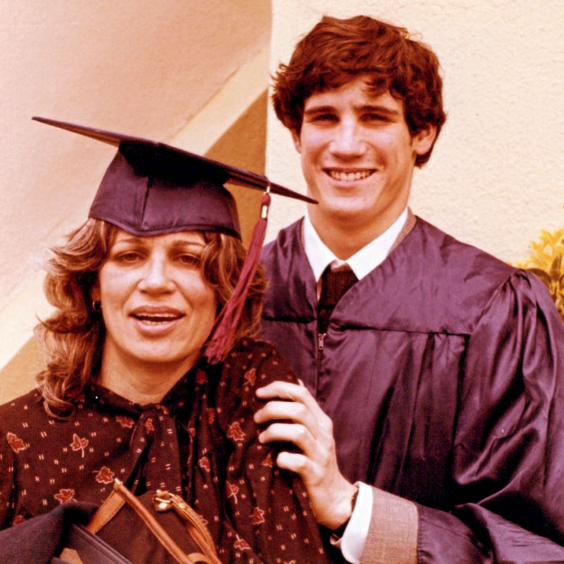
“I couldn’t do a chin-up to save my life,” Bill Sarraille recalls of his third-grade self. This did not deter him from sports, but he was plagued by mysterious pains in his back, hip, and knees. Then, when he was in law school, he was unable to pivot in the middle of a football game. “The next morning, I got out of bed and looked at my right lower leg, and half of it was gone.” The muscle had deteriorated, almost overnight.
After visits to many doctors, he finally met one who said he had FSHD or a similar muscular dystrophy. “Nothing can be done,” the doctor told him, “but try to live a stress-free life.” That wasn’t going to happen in Sarraille’s chosen career in law. “So I didn’t do anything related to my FSHD for years and years. I just put my head down and worked.”
After his diagnosis, his mother and two sisters were also diagnosed with FSHD. His sisters’ disease progressed faster than his. His eldest sister was bedridden for 10 years before she died, and his other sister is now bedridden as well. “It’s very sad to see other family members affected even more severely than I was,” he says. “In my career as a healthcare lawyer, that family perspective loomed over what I did.”
Recently retired, Sarraille had specialized in healthcare regulatory and compliance matters for more than 30 years. His expertise in launching rare disease treatments and navigating coverage and reimbursement hurdles is invaluable now in his role as a board member and advisor to the FSHD Society.
“Regulators have to condition themselves to separate emotionally from what is very real to us,” he says. “It’s an old plaintiff lawyer’s axiom that the job of a plaintiff in a trial is to show their wounds to the jury. “It’s going to be up to us to show our wounds. To show that our suffering, our families’ suffering, deserves attention, deserves treatment, and that we aren’t going to settle for an answer that doesn’t provide meaningful access to therapy.”


Bill, my name is Bill Cheek in the Asheville, NC area. Two of my sons have FSHD. Your comment about not being able to do chin-ups took my breath away as that was the first time my son noticed his strength had shrunk. He had a chin up bar in his door way which he used, and one day he said “Dad i can’t do chin-ups anymore”. That was around 2007-2008 or so and it changed our world. I would love to chat with you sometime. Your story is inspiring. My sons are doing well, even with the physical challenges. Hope you are well also! Best, Bill Cheek
Hello Bill, my name is Jim Hargaden and I have been living with FSHD for more than 50 years. I have 2 brothers who also have FSHD and have been waiting for permanent disability for over 2 years even though they were both employed for 40 years. Can you please provide any advise on this matter? Enjoy your well earned retirement.
Thanks,
Jim